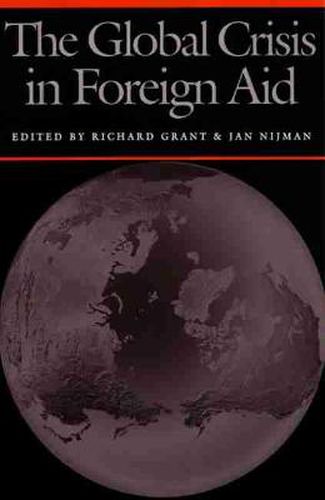The Global Crisis in Foreign Aid

The Global Crisis in Foreign Aid
The internal destabilization of many poor countries that accompanied the end of the Cold War and the general failure of structural adjustment programs have changed the nature and allotment of foreign aid around the world.
Major donors of foreign aid such as the United States, Japan, and the European Union have been shifting their geographical priorities in allocating aid, as well as their project emphasis, since the end of the Cold War. In addition, multilateral aid agencies–the World Bank, the United Nations, and the Interna-tional Monetary Fund–are attempting to redress past failures of aid and revamp policies and priorities. Moreover, aid recipients in Africa, the Middle East, Asia, Eastern Europe, the former Soviet republics, and Central America are establishing priorities of their own and evaluating the success and failure of past aid programs.
This volume stands out in the literature on foreign aid because it includes contributions from eight policy representatives from a range of important donor and recipient countries–the United States, Japan, the
Netherlands, Bolivia, Egypt, Bangladesh, El Salvador, and Poland. Timely in its assessment of the crisis and the transition in the foreign aid regime, the book pro-vides a view from inside the policy process and im-parts a researcher’s perspective on the changing pri-orities for donors and recipients. The wide-ranging essay–most previously unpublished–aim to shed light on the changing political, economic, and regional geographies of aid at the end of the twentieth century.
This item is not currently in-stock. It can be ordered online and is expected to ship in approx 4 weeks
Our stock data is updated periodically, and availability may change throughout the day for in-demand items. Please call the relevant shop for the most current stock information. Prices are subject to change without notice.
Sign in or become a Readings Member to add this title to a wishlist.


